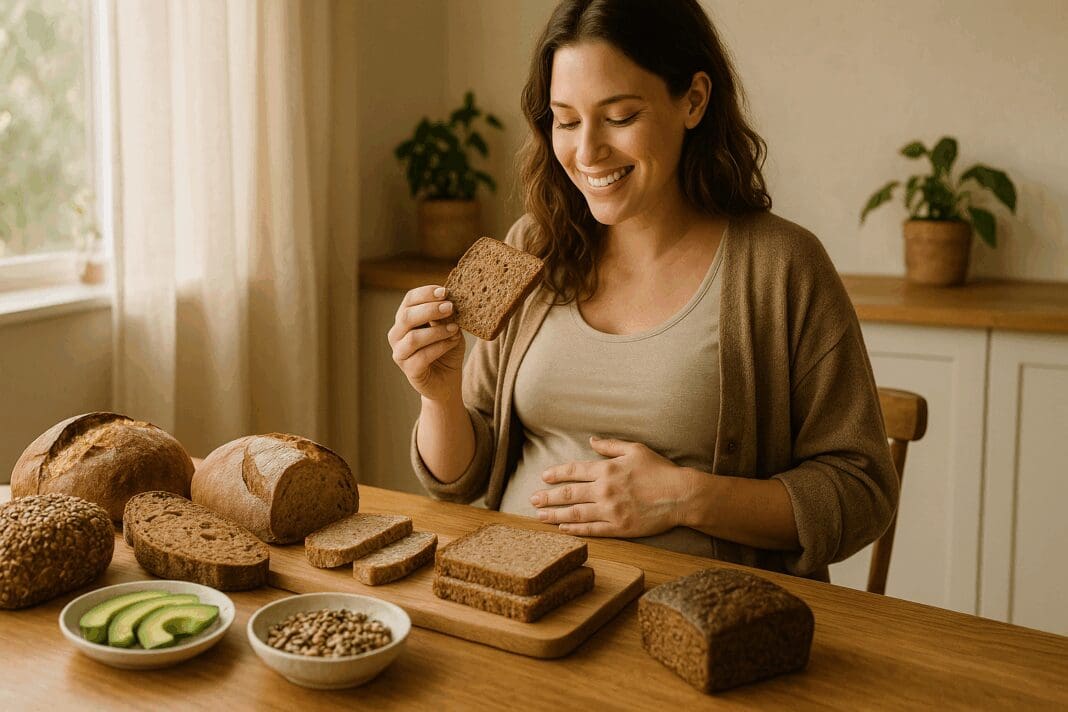Pregnancy ushers in a transformative period in a woman’s life, not only emotionally and physically but also nutritionally. The question of dietary choices becomes more pressing, as expectant mothers are not just eating for themselves but for the growth and well-being of their developing baby. One question that often arises is, is bread good for pregnant women? This seemingly simple inquiry opens the door to a broader exploration of carbohydrate intake, nutrient density, potential health risks, and the role of different types of bread in supporting a healthy pregnancy.
You may also like: 7 Vital Reasons to Choose Yogurt for Pregnant Women’s Diet
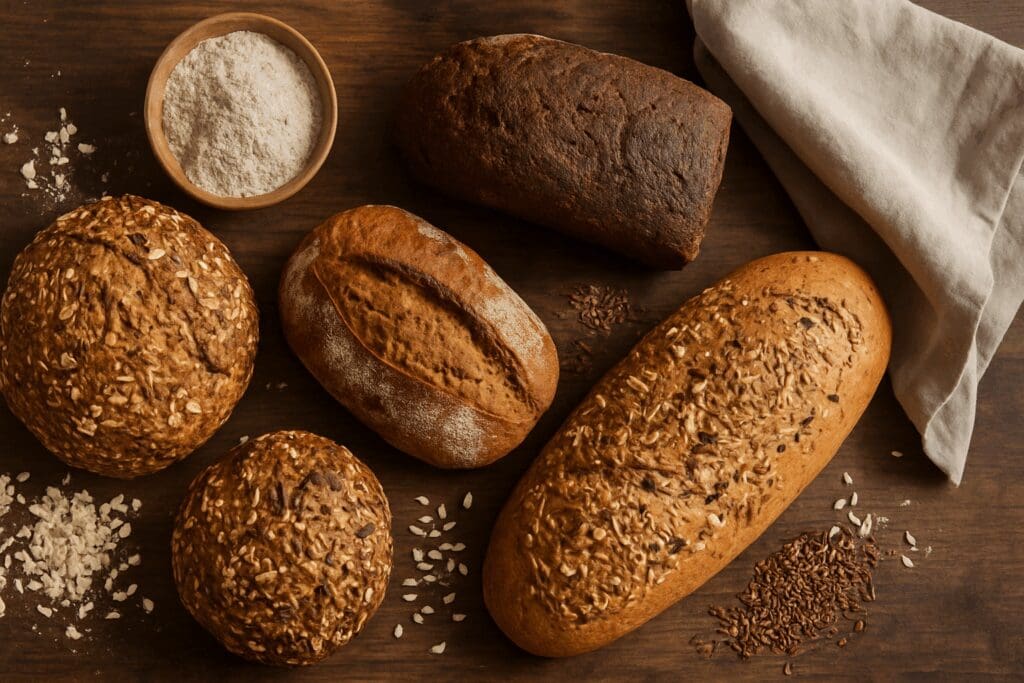
Understanding Bread as a Staple in Pregnancy Nutrition
Bread has long held a foundational place in global diets, often serving as a convenient, accessible source of energy. For pregnant women, the caloric and carbohydrate contributions of bread can be particularly useful, especially during the early stages of pregnancy when nausea and food aversions make eating more complex. Whole-grain breads provide fiber, B vitamins, iron, and magnesium, which are all essential nutrients during pregnancy. However, not all bread is created equal, and distinguishing between the varieties is crucial when considering the best bread for pregnancy. The glycemic index, ingredient quality, and presence of additives all influence how beneficial or potentially harmful bread can be.
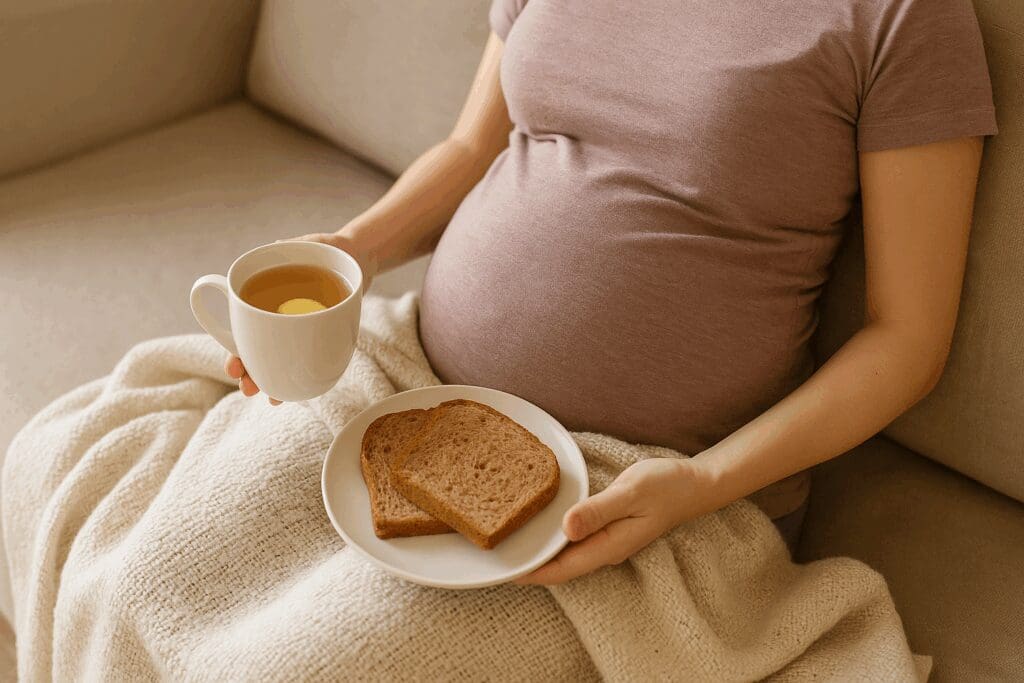
Is Bread Good for Pregnant Women During the First Trimester?
During the first trimester, hormonal changes often trigger morning sickness, which can significantly limit a pregnant woman’s food intake. In such cases, plain bread or toast may become a go-to option due to its bland, easily digestible nature. While this can be a temporary solution to ease queasiness, relying solely on white or refined breads may offer little nutritional value. Whole grain options, on the other hand, offer sustained energy and help prevent constipation, a common issue in early pregnancy. Additionally, fortified breads may provide folic acid, a critical nutrient in the first trimester for preventing neural tube defects.
Choosing the Best Bread for Pregnancy: Nutritional Considerations
Selecting the best bread for pregnancy involves evaluating ingredient labels with a critical eye. Pregnant women should aim for breads that are high in dietary fiber, low in added sugars, and free from trans fats or preservatives. Breads made from 100% whole wheat or sprouted grains are particularly beneficial, as they provide slow-digesting complex carbohydrates and more intact nutrients. Rye bread, oat bread, and sourdough made with whole grains can also be excellent options. The fermentation process in sourdough may aid in better nutrient absorption and gut health, which are both significant during pregnancy. Choosing breads fortified with iron and folic acid adds another layer of nutritional support.
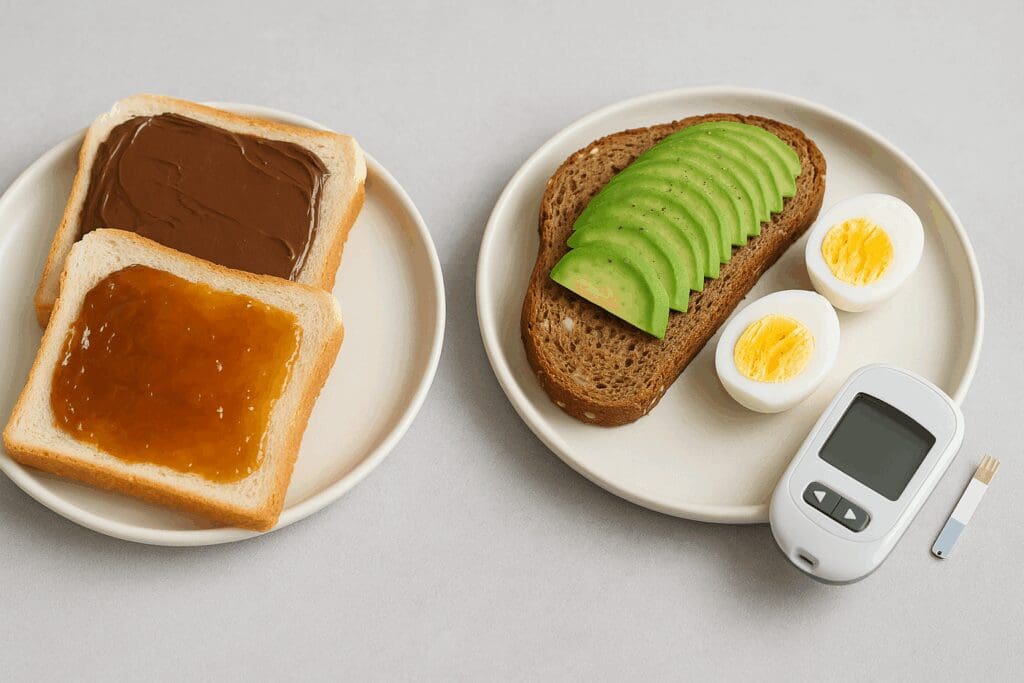
Is Bread Good for Pregnant Women When Managing Blood Sugar Levels?
Gestational diabetes is a condition that affects many pregnant women, making blood sugar management a critical component of dietary planning. In this context, the type of bread consumed can significantly influence glucose levels. Whole grain and high-fiber breads have a lower glycemic index than white or processed varieties, resulting in a more gradual release of glucose into the bloodstream. This makes them a preferred choice for women aiming to stabilize their blood sugar during pregnancy. Additionally, pairing bread with protein-rich foods such as eggs or nut butter can further mitigate glucose spikes, offering a balanced nutritional profile.
The Role of Bread During the Second Trimester: Energy and Nutrient Demands
The second trimester is often described as the most comfortable phase of pregnancy, with increased energy levels and a stabilized appetite. Nutrient requirements escalate during this time, particularly for protein, iron, and calcium. Bread, particularly those made with enriched flours or seeds, can contribute meaningfully to these increased demands. For example, multigrain bread with flaxseeds or chia seeds not only delivers fiber but also omega-3 fatty acids, which are vital for fetal brain development. Women should also be aware of sodium content in bread, as excess salt can contribute to swelling and hypertension.
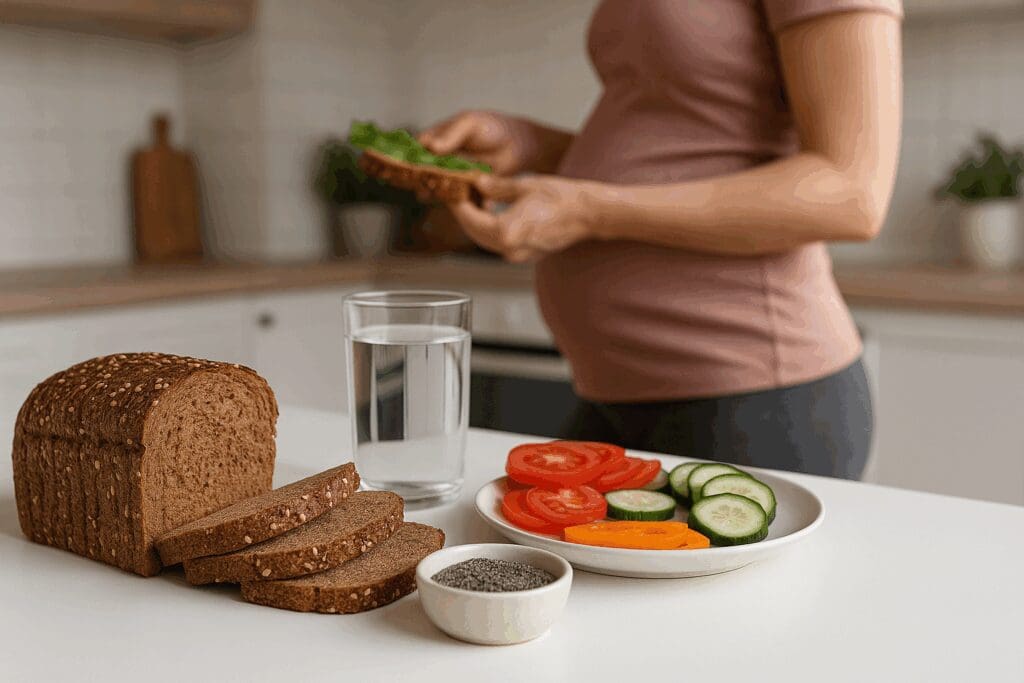
Evaluating the Best Bread for Pregnant Women in the Third Trimester
Bread during pregnancy’s third trimester plays a supporting role in sustaining energy and preparing the body for labor. However, weight gain and water retention can become concerns in these final months. Choosing breads that are low in sodium and high in fiber becomes particularly important. The best bread for pregnant women during this phase may include sprouted grain bread, which is easier to digest and richer in bioavailable nutrients. Furthermore, incorporating whole grain bread with fermented ingredients may enhance digestion, a critical benefit when the growing uterus begins to compress the digestive tract.
Is Bread Good for Pregnant Women Who Follow Special Diets?
Pregnant women who follow vegetarian, vegan, gluten-free, or other specialized diets must pay close attention to bread choices. For vegetarians and vegans, bread can be a valuable source of iron, B vitamins, and protein, provided they select enriched or high-protein varieties. Gluten-free pregnant women must be cautious, as many gluten-free breads are made with refined starches that offer little fiber or nutritional value. Opting for gluten-free breads that incorporate whole grains such as buckwheat, quinoa, or millet can make a significant difference. Reading ingredient lists carefully ensures that the bread supports rather than detracts from a specialized diet during pregnancy.
Understanding Bread Cravings During Pregnancy: Psychological and Physiological Roots
Cravings for bread or other carbohydrate-rich foods during pregnancy are not uncommon and can stem from both psychological and physiological needs. Carbohydrates trigger serotonin release, which can help improve mood and reduce anxiety. Physiologically, the body’s increased demand for energy, especially in the second and third trimesters, can lead to intensified cravings for calorically dense foods like bread. However, it’s important to distinguish between satisfying a healthy craving and overindulging in low-nutrient, high-calorie bread products. Moderation and mindful eating can allow pregnant women to enjoy bread without compromising overall nutritional goals.
How Bread Affects Digestive Health During Pregnancy
Digestive discomforts such as constipation, bloating, and heartburn are frequent complaints among pregnant women. The type of bread consumed can either alleviate or exacerbate these issues. Whole grain breads, especially those with added seeds and natural fibers, can aid in regulating bowel movements. In contrast, white bread or overly processed varieties may contribute to sluggish digestion and heightened discomfort. Sourdough bread may offer a unique advantage due to its fermented nature, potentially easing digestion and reducing bloating. Hydration, exercise, and fiber-rich foods—including appropriate bread choices—form a trio of essential strategies for digestive wellness during pregnancy.
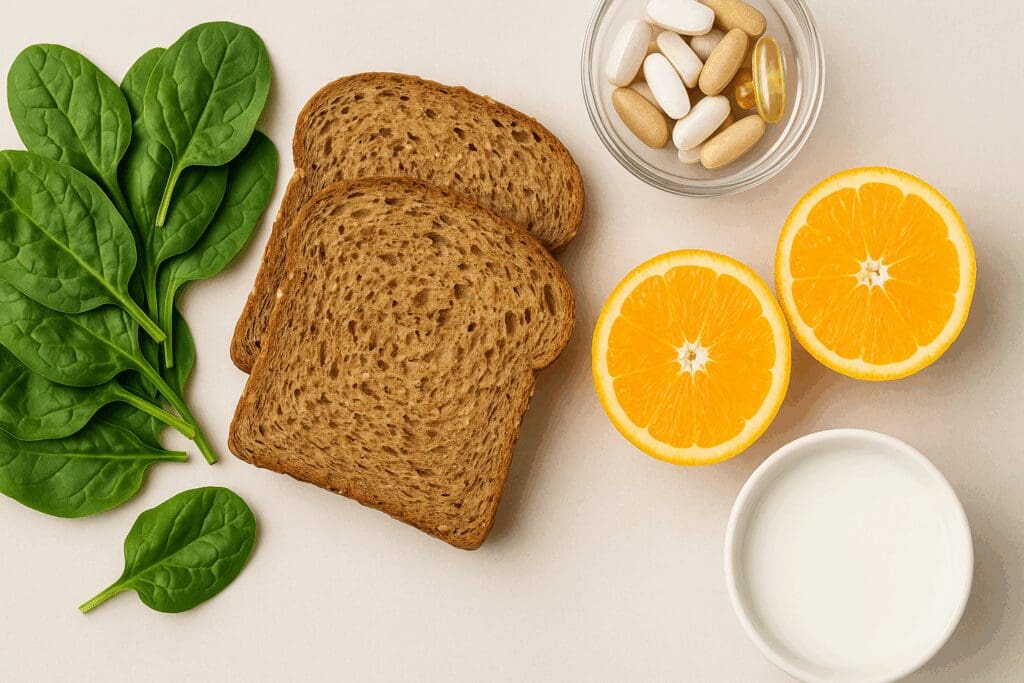
Bread as a Source of Essential Micronutrients for Expecting Mothers
Beyond macronutrients like carbohydrates and fiber, bread can be a surprising source of essential micronutrients. Many breads are fortified with folic acid, iron, calcium, and B vitamins—nutrients that support fetal development, maternal blood volume expansion, and overall energy metabolism. Folic acid is particularly crucial during the first trimester, making fortified bread a potentially strategic inclusion in early pregnancy diets. Iron, too, becomes increasingly important in the second and third trimesters, and iron-fortified breads can help pregnant women meet their elevated needs. Reading nutritional labels helps ensure these benefits are maximized.
Is Bread Good for Pregnant Women on a Budget?
Eating well during pregnancy does not have to break the bank, and bread often represents an economical way to obtain necessary nutrients. Whole grain breads, while sometimes more expensive than their refined counterparts, still offer a cost-effective option compared to other nutrient-dense foods. When paired with budget-friendly proteins like legumes or eggs, and topped with vegetables or nut spreads, bread can become a cornerstone of an affordable, balanced pregnancy diet. Bulk purchasing and freezing slices can further enhance cost-effectiveness without sacrificing nutritional value.
Practical Tips for Incorporating the Best Bread for Pregnancy Into Meals
Knowing how to integrate the best bread for pregnancy into a daily meal plan can enhance nutritional adequacy and culinary enjoyment. Toast topped with avocado, poached eggs, or almond butter can make for a nourishing breakfast or snack. Sandwiches made with lean protein and plenty of vegetables on whole grain bread provide a complete meal that supports maternal and fetal health. Additionally, experimenting with global bread varieties—such as pita, roti, or Scandinavian rye—can introduce new flavors and expand the nutrient profile. Pairing bread with healthy fats, protein, and produce ensures a balanced approach.
Avoiding Hidden Ingredients in Commercial Breads
Many commercial breads contain additives, preservatives, and excessive sugars or salts that are best minimized during pregnancy. Reading ingredient labels is essential to avoid undesirable elements such as high-fructose corn syrup, artificial colors, and dough conditioners like azodicarbonamide. Organic and bakery-fresh breads may offer cleaner ingredient lists, though not always. When possible, choosing breads with fewer than seven recognizable ingredients often indicates higher quality. Pregnant women with food sensitivities or allergies should be especially vigilant about checking labels for soy, dairy, or nuts, which may be hidden in processed varieties.
Home Baking: A Customizable Option for Nutrient-Dense Breads
For those with the time and interest, baking bread at home allows complete control over ingredients and nutrient density. Expectant mothers can tailor recipes to include seeds, whole grains, and natural sweeteners, avoiding preservatives and artificial additives altogether. Incorporating flaxseed, sunflower seeds, or even pureed vegetables like pumpkin or sweet potato can enhance both flavor and nutrition. Homemade sourdough offers probiotic benefits and digestibility advantages. Moreover, baking can serve as a therapeutic and mindful activity during pregnancy, offering emotional and creative benefits beyond its nutritional contribution.
How Cultural Perspectives Shape Bread Consumption During Pregnancy
Cultural traditions play a significant role in shaping dietary choices during pregnancy, and bread is no exception. In Mediterranean cultures, whole wheat pita or flatbread may be served with hummus and vegetables, creating a balanced, nutrient-rich meal. In Indian cuisine, chapatis or rotis made from whole wheat or millet flour offer fiber and iron. Understanding these diverse traditions can broaden a pregnant woman’s appreciation for varied, healthy bread options and encourage cultural exploration within a nutritionally conscious framework. Respecting ancestral dietary patterns may also enhance emotional connection and familial support during pregnancy.
Risks of Overconsumption: When Bread Becomes a Concern
While bread can be a valuable component of a pregnancy diet, overconsumption—particularly of low-quality, refined breads—can lead to undesirable outcomes. Excessive intake may contribute to unnecessary weight gain, blood sugar imbalances, or nutrient displacement, where bread replaces more nutrient-dense options like fruits and vegetables. It is crucial to maintain portion awareness and prioritize variety within carbohydrate sources. Rotating bread with brown rice, quinoa, sweet potatoes, or legumes ensures a broader nutrient spectrum and reduces dependency on any one food. Consulting a registered dietitian can help tailor bread intake to individual nutritional needs and preferences.
Is Bread Good for Pregnant Women With Food Sensitivities?
Some pregnant women discover new food sensitivities or intolerances during pregnancy, including to gluten, yeast, or dairy. In such cases, bread can become a source of discomfort unless carefully selected. Gluten-free breads made from nutrient-rich flours like almond, teff, or quinoa offer alternatives, though they may lack the fortification found in conventional breads. Yeast-free options, such as unleavened bread or certain flatbreads, can also provide variety. Personalized adjustments ensure that bread remains a beneficial part of the diet without triggering adverse reactions.
Navigating Bread Choices with Professional Guidance
Pregnancy is not a time for guesswork, especially when it comes to nutrition. Consulting with healthcare providers, including obstetricians and registered dietitians, can provide personalized insight into bread choices and broader dietary patterns. These professionals can help identify nutrient deficiencies, manage weight gain, and offer culturally appropriate suggestions that align with health goals. They can also guide expectant mothers navigating gestational diabetes, food allergies, or other medical conditions. Relying on professional advice ensures that bread contributes positively to maternal and fetal well-being rather than complicating health outcomes.
The Psychological Comfort of Bread in Maternity Nutrition
Beyond its physical health benefits, bread often carries emotional significance and can offer psychological comfort during the emotional roller coaster of pregnancy. The aroma, texture, and familiarity of bread can soothe anxiety or provide a grounding experience amidst bodily changes. Sharing bread-based meals with family or revisiting childhood recipes can foster emotional connection and reduce isolation. Acknowledging this emotional layer encourages a more compassionate and holistic approach to maternity nutrition, where mental and emotional well-being are valued alongside physical nourishment.
Frequently Asked Questions: Is Bread Good for Pregnant Women? Exploring Deeper Insights into Bread and Maternity Nutrition
What makes the best bread for pregnancy beyond just whole grain labeling?
While many people assume that any whole grain bread qualifies as the best bread for pregnancy, the reality is more nuanced. The fermentation method, ingredient sourcing, and processing level all influence the final nutritional value. For example, breads made from sprouted grains tend to offer higher bioavailability of nutrients, meaning the body can absorb vitamins and minerals more effectively. Additionally, artisan or homemade breads often contain fewer preservatives and additives, which may be beneficial for reducing exposure to synthetic compounds during pregnancy. Always examine the ingredients list closely—terms like “whole wheat flour” should be listed as the first ingredient, and avoid loaves with hydrogenated oils, high-fructose corn syrup, or excessive sodium.
Is bread good for pregnant women experiencing acid reflux or heartburn?
Bread can be both helpful and problematic depending on its type and how it’s consumed. For pregnant women who struggle with acid reflux or heartburn, soft, plain breads such as sourdough or lightly toasted whole grain slices may help absorb stomach acid and offer relief. However, breads made with garlic, onions, or spicy seasonings may exacerbate symptoms. Additionally, eating smaller portions of bread more frequently throughout the day rather than large meals can minimize the pressure on the lower esophageal sphincter, reducing the likelihood of reflux. Staying upright after eating and pairing bread with non-acidic foods like almond butter or soft-cooked vegetables can further ease symptoms.
Can sourdough be considered one of the best breads for pregnant women?
Sourdough bread stands out as a potential winner among maternity-friendly options due to its natural fermentation process. The fermentation not only enhances flavor but also pre-digests some of the gluten and phytic acid, making it easier for the digestive system to handle. This can be especially advantageous for women who develop mild sensitivities during pregnancy without being fully gluten-intolerant. Moreover, sourdough often boasts a lower glycemic index compared to standard white or even some whole wheat breads, helping with blood sugar control. When sourced from bakeries that use traditional starters and long ferment times, sourdough can offer a wholesome, gut-friendly addition to the pregnancy diet.
How does bread during pregnancy third trimester support labor readiness?
As labor approaches, the body requires sustained energy and stable blood sugar levels, which complex carbohydrates in bread can help maintain. Consuming whole grain bread enriched with iron, B vitamins, and magnesium may also support muscle function and reduce the risk of leg cramps, which are common in late pregnancy. Additionally, bread during pregnancy third trimester can serve as a quick yet balanced vehicle for nutrient-rich toppings like avocado, lean meats, or calcium-rich cheeses. In multicultural settings, traditional labor preparation meals often include bread-based dishes, underscoring their cultural and practical significance. Incorporating slow-release carbohydrates through high-fiber breads may even contribute to stamina during the early stages of labor.
Is bread good for pregnant women managing weight gain or gestational diabetes?
Managing gestational diabetes requires careful carbohydrate selection and portion control, and not all breads make the cut. Is bread good for pregnant women in this context? It can be—if the right types are chosen. Look for breads with at least 3–5 grams of fiber per slice and a minimal ingredient list free of added sugars. Pairing bread with high-protein or healthy fat options like cottage cheese or hummus can slow glucose absorption, supporting better glycemic control. Additionally, incorporating a variety of grains, such as rye or barley, can diversify nutrient intake while maintaining blood sugar balance.
What are some lesser-known ingredients that enhance the best bread for pregnancy?
Beyond basic whole wheat or multigrain compositions, innovative bread recipes are emerging that feature nutrient-boosting additions ideal for pregnancy. Ingredients like blackstrap molasses, used in small quantities, can elevate iron content, while flaxseeds and chia seeds provide omega-3s crucial for fetal brain development. Some specialty breads include brewer’s yeast, which offers B vitamins and may help with postpartum milk production. Beets and spinach purees are also finding their way into artisan loaves, adding both color and folate. Exploring these less conventional options allows expecting mothers to experience variety while supporting the complex nutritional needs of pregnancy.
How does bread consumption interact with prenatal supplements and nutrient absorption?
Bread, particularly when consumed regularly, can influence how well certain vitamins and minerals from supplements are absorbed. For example, whole grain breads contain phytic acid, a compound that can bind minerals like iron and zinc, reducing their bioavailability. However, soaking, sprouting, or fermenting grains—as in the case of sourdough or sprouted breads—can reduce phytic acid levels. Timing also matters; taking iron supplements away from bread-based meals can enhance absorption. It’s worth noting that fortified breads can act as a supplemental source of folic acid, potentially reducing the need for higher-dose folic acid pills depending on dietary intake.
Is bread good for pregnant women who have celiac disease or gluten sensitivity?
Women diagnosed with celiac disease must strictly avoid gluten, but this doesn’t mean they have to forgo bread entirely. Gluten-free breads made from almond flour, buckwheat, sorghum, or millet can provide nourishing alternatives. When considering whether is bread good for pregnant women with these conditions, the quality and nutrient density of the gluten-free bread become paramount. Many commercial options are high in starch and low in fiber, so choosing breads enriched with seeds, legumes, or vegetable fibers can enhance both taste and nutrition. Homemade gluten-free breads offer greater ingredient control and can be customized to support prenatal needs without the common fillers found in store-bought versions.
Can bread contribute to emotional well-being during pregnancy?
Carbohydrates, including those from bread, play a role in serotonin production, the neurotransmitter associated with mood regulation. During pregnancy, hormonal shifts can affect mood, and comfort foods like warm, familiar breads may offer psychological relief. The sensory experience—smell, texture, taste—of freshly baked bread can evoke positive memories and create a sense of stability during a time of change. Moreover, sharing meals that include bread with loved ones can foster social connection, which is crucial for mental health in pregnancy. That said, it’s important to distinguish emotional eating from mindful nourishment to ensure bread contributes to overall wellness rather than acting as an escape from stress.
What are future trends in bread for pregnant women focusing on personalized nutrition?
As the field of personalized nutrition grows, bread products are evolving to meet individualized health needs—including those of expectant mothers. Advances in food tech are enabling custom fortification, where bread is tailored with nutrients based on a woman’s age, health markers, or genetic predispositions. Some companies are also exploring microbiome-friendly bread formulas that promote gut health, a frontier of interest in maternal-fetal medicine. Additionally, artificial intelligence is being leveraged to suggest optimal bread choices for pregnancy stages, integrating real-time blood sugar tracking and nutrient requirements. These emerging innovations signal a shift toward making the best bread for pregnant women even more targeted, effective, and science-backed.
Final Thoughts: Is Bread Good for Pregnant Women?
The answer to the question, is bread good for pregnant women, is not a simple yes or no. Instead, it lies within the nuanced context of bread type, nutritional content, portion size, individual health needs, and personal preference. Bread can be a powerful ally in supporting energy, digestion, micronutrient intake, and emotional well-being throughout pregnancy. However, not all breads offer equal benefits, and informed, mindful choices are essential to maximize their positive impact. Whole grain, sprouted, and fortified breads are among the best bread for pregnant women, especially when incorporated into a diet that is rich in variety, moderation, and balance. By approaching bread with nutritional awareness and cultural appreciation, expectant mothers can confidently enjoy its many comforts and contributions to a healthy, empowered pregnancy.
Further Reading:
Bread During Pregnancy: Benefits & Side Effects for You and Your Baby

